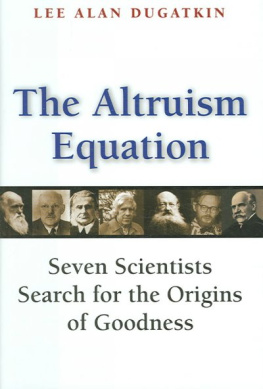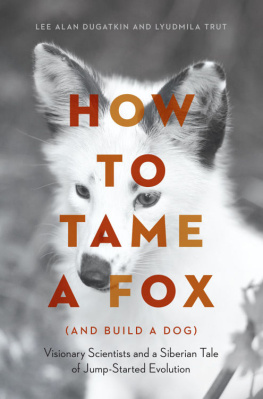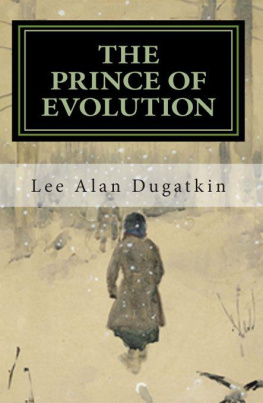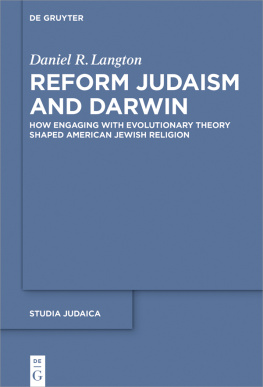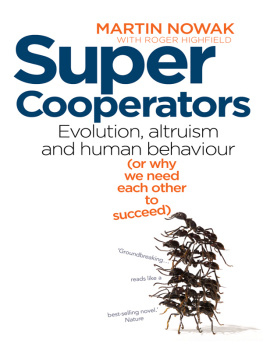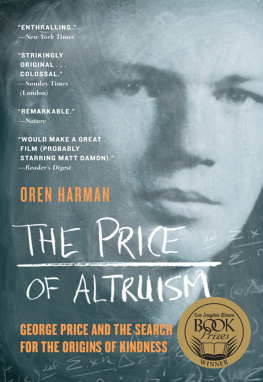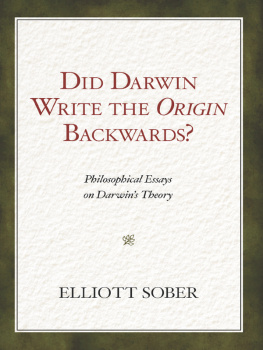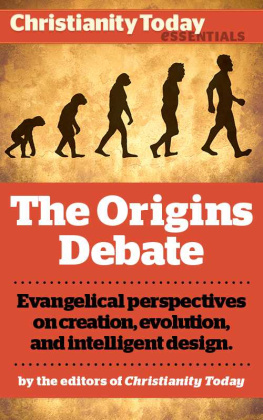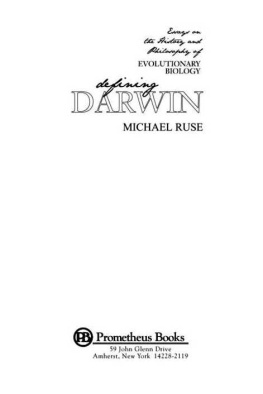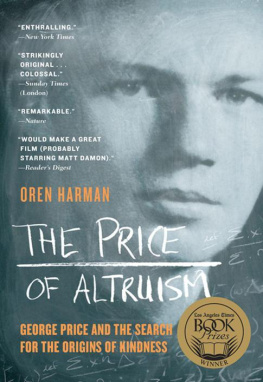The Altruism Equation
SEVEN SCIENTISTS SEARCH FOR
THE ORIGINS OF GOODNESS
L EE A LAN D UGATKIN
PRINCETON UNIVERSITY PRESS
PRINCETON AND OXFORD
Copyright 2006 by Princeton University Press
Published by Princeton University Press, 41 William Street,
Princeton, New Jersey 08540
In the United Kingdom: Princeton University Press,
3 Market Place, Woodstock, Oxfordshire
OX20 1SY
Library of Congress Cataloging-in-Publication Data
Dugatkin, Lee Alan, 1962
The altruism equation : seven scientists search for the origins of
goodness / Lee Alan Dugatkin.
p. cm.
Includes bibliographical references and index.
ISBN-13: 978-0-691-12590-9 (hardcover : alk. paper)
ISBN-10: 0-691-12590-2 (hardcover : alk. paper)
1. Altruistic behavior in animals. 2. Altruism. I. Title.
QL775.5.D84 2006
591.56dc22 2006005400
British Library Cataloging-in-Publication Data is available
This book has been composed in Palatino
Printed on acid-free paper.
pup.princeton.edu
Printed in the United States of America
1 3 5 7 9 10 8 6 4 2
DEDICATED TO THE MEMORY OF
MY BELOVED FATHER, HARRY DUGATKIN (19182004),
WHO TAUGHT ME THAT
FAMILY ALWAYS COMES FIRST
Contents
C HAPTER O NE
A Special Difficulty That Might Prove Fatal
C HAPTER T WO
Darwins Bulldog versus the Prince of Evolution
C HAPTER T HREE
The Greatest Word from Science since Darwin
C HAPTER F OUR
J.B.S.: The Last Man Who Might Know All There Was to Be Known
C HAPTER F IVE
Hamiltons Rule
C HAPTER S IX
The Price of Kinship
C HAPTER S EVEN
Spreading the Word
C HAPTER E IGHT
Keepers of the Flame
C HAPTER N INE
Curator of Mathematical Models
Preface
F OR MORE THAN a hundred years, a fierce debate raged within the scientific community on the importance of blood kinship in shaping altruism in everything from animals to humans. This debate, which began in 1859, was extremely contentious, because whoever was right was going to control our view of the origins of goodness. The reason is simpleat its heart, altruism is about incurring a personal cost in order to help others, and that is close to what most of us mean when we speak of doing good. So in essence, a theory on altruism is a theory on goodness.
The debate on altruism and kinship would raise to the surface a number of related questions: was nature red in tooth and claw, or a cooperative paradise? And whatever the answer, was there really a biological theory that could explain this? Before the fighting came to an end, politics, philosophy, mental illness, and even religion would enter the fray, complicating for close to a century attempts to find and settle on scientific answers to scientific questions.
For long stretches of time, the role of blood kinship in shaping human and nonhuman altruism occupied some of the best minds in science. We shall see why four British scientistsCharles Robert Darwin, Thomas Henry Huxley, J.B.S. Haldane, and finally W. D. Hamiltondevoted a good piece of their working lives to the question of kinship and altruism and how that obsession transformed their own lives. Along the way, we will encounter the Russian Prince Petr Kropotkin, the most important anarchist of his time, and two American academicsthe Quaker scientist Warder Allee and a suicidal intellectual giant named George Price.
Eventually biology did solve the puzzle of blood kinship and altruism in the form of a mathematical equation developed by a shy, brilliant evolutionary biologist named William D. Hamilton. Hamilton came onto the stage in the 1960s, and using the cost-benefit perspective we most often associate with economists, along with a deep understanding of how evolution operates, crisply and precisely laid out a simple mathematical model explaining why individuals treat blood kin in such a special way. Phrased in the hard, cold language of natural selection, Hamiltons model boils down to this: blood relatives share many of the same genes, and so by helping kin, you are indirectly helping yourself. Of course, it is a bit more complicated than that, but we will get into the complications soon enough.
Although it took more than a decade for the implications of his work to take hold, Hamiltons model on altruism and blood kinship eventually gained him the ultimate scientific accolade a rule that bears his name. This rules influence on evolutionary biology has been as great as the impact of Newtons laws of motion on physics. Yet the story of how it was discovered, how it changed the lives of the men who worked on its discovery, and why even its discoverer wished that the opposing position had turned out to be right, has never before been told.
But first things first. Our story of blood kinship and social behavior begins where all stories of evolution beginwith Charles Darwin.
Acknowledgments
T HE ACKNOWLEDGMENT section always makes me nervous, as I fear that I may forget to express thanks to one of the many people who helped make this book possible. That said, I am grateful to the following individuals who took time from their very busy schedules to allow me the chance to interview them: Richard Dawkins, Lord Sir Robert May, Alan Grafen, Paul Harvey, E. O. Wilson, Naomi Pierce, David Haig, James Schwartz, Jeremy John, Kern Reeve, Stephen Emlen, Tom Seeley, Paul Sherman, and the late Garret Hardin. I am also indebted to Michael Ruse, Alan Grafen, Paul Ewald, Marc Bekoff, Jeffrey Robbins, and Ryan Earley, who read all or parts of the manuscript and provided essential critiques.
Sam Elworthy, my editor at Princeton University Press, is as good as they come. Sams patience with a type A, semineurotic author was greatly appreciated, and his input at every level has improved this book dramatically. My agent, Susan Rabiner, has been with me every step of the way, from the books inception to its completion. As always, Susans guidance, assistance, and editorial advice were much appreciated.
Finally, I wish to express my sincere appreciation to my wife, Dana, and son, Aaron, who have always stood by my side.
The Altruism Equation
CHAPTER ONE
A Special Difficulty That Might Prove Fatal
W HILE WRITING On the Origin of Species in the late 1850s, Charles Darwin was unencumbered by the This freedom allowed him the scope to tackle issues that he might otherwise have avoided. In particular, Darwin was not afraid to address problems associated with his theory of evolution by natural selection. He did so often, and at length.
This book is about one of Darwins problems. It began as a small difficulty with honeybees. At first glance, it did not seem like the sort of complication that could sink a theory that many have characterized as the most important one that biology has ever produced. But it turned into a problem that troubled biologists, fascinated naturalists, engaged popular writers and the general public, and even worked its way into political discourse for the next 145 years.
Honeybees had been introduced into Britain around A.D. 45,
In practice, what the scientific and public love affair with bees meant was that they could not be ignored in the Origin, and as Darwin biographer Janet Browne notes, If any aspect of bee life was at odds with natural selection, then Darwin understood that it had to be addressed front and center in order for his theory to be credible. One such problem was the existence of nonreproductivethat is, sterilecastes that often occur in insects such as bees, wasps, and ants. These workers are true altruists. In the first place, they do not reproduce but instead provide all sorts of resources to queensthe individuals who

